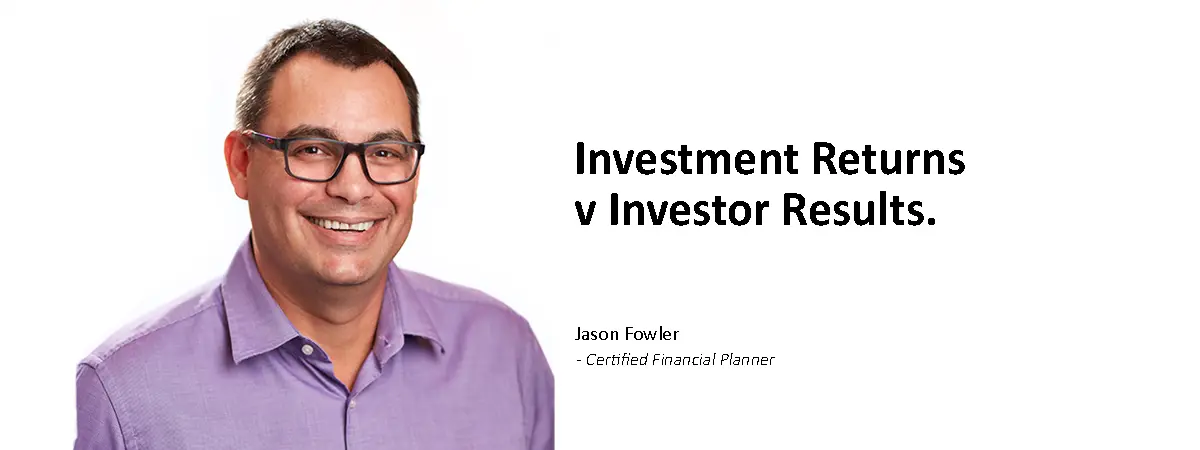When you open the newspaper or you watch the financial pornography networks on TV, they always talk about the performance of investments.
And what we don’t realise is that there’s a big difference between an investment and an investor.
If you buy an investment for ten years and hold it for the whole time period, and don’t add or take any money away, you get that investment performance.
But nobody does that – that’s the dilemma. Of course, we want the best investment we can find. But the challenge is, even when we own the best investment, our behaviour gets in the way.
We’re hard-wired to get more of the stuff that brings us security and pleasure and run away from stuff that’s causing us pain.
You see on the news that some investment, or sector of the market or the market as a whole, is down and everybody’s selling. You feel like you should sell. Or something’s gone up and you feel like you should buy.
Look, you can have the best investment portfolio ever created, but make one behavioural mistake a decade and you may as well have been in cash.
The Dalbar Study shows that there’s a difference between the average investment return that an investment generates and what the average investor in that investment receives.
Often, it’s because they’re trading, changing in and out, looking for the next hot investment. That’s what the news tells us. The financial pornography circus tells us.
For 26 years, Dalbar has analyzed investors’ market timing successes and failures through their net purchases and sales. This form of analysis, known as the Guess Right Ratio, examines fund inflows and outflows to determine how often investors correctly anticipate the direction of the market the following month. Investors guess right when a net inflow is followed by a market gain, or a net outflow is followed by a decline.
Investors have guessed right at least half the time in 12 out of the last 20 years but guessed correctly right on only 3 of the 12 months in 2019. Unfortunately for the Average Investor, whether they guess right or wrong, it seldom produces superior gains either way because the dollar volume of bad guesses exceeds the dollar volume of right guesses. Even one month of wrong guesses can wipe out several months of right ones.
The Dalbar Study: 20 years of Average Equity Funds v S&P 500 Index – 20 years (1/01/2000 – 31/12/2019)
| Average Equity Fund Investor (%) | S&P 500 (%) | Inflation (%) | |
| 20 Year | 4.25 | 6.06 | 2.14 |
| 10 Year | 9.43 | 13.56 | 1.75 |
| 5 Year | 7.79 | 11.70 | 1.82 |
| 3 Year | 11.50 | 15.27 | 2.10 |
| 12 Month | 26.14 | 31.49 | 2.29 |
Investment behaviour is one of those things where we’re hard-wired to do things that are against our own self-interest.
A good financial adviser can say, “Hey, wait. Let’s just back up and remember”. They can help walk you in off the ledge when you feel like jumping. That’s the role of a good financial adviser.
Jason Fowler







